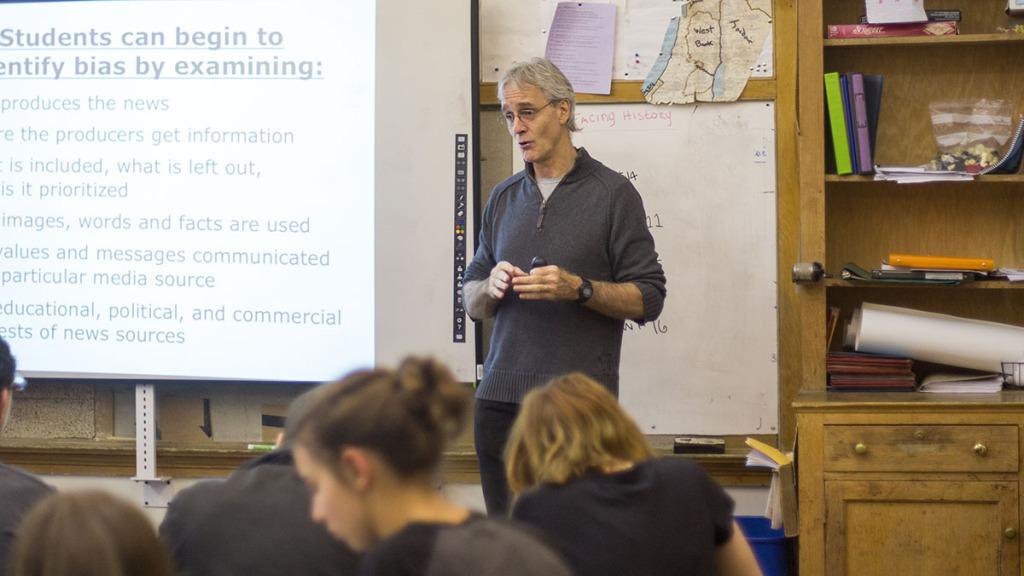Chris Sperry ’79, director of curriculum and staff development for Project Look Sharp, the college’s media literacy initiative, has studied education and media literacy since he was a student at Ithaca College. With his knowledge of the topic, he has developed his own method of teaching critical thinking and now works with Project Look Sharp to work with educators throughout the world.
Most recently, Sperry published a piece in Social Education magazine titled “WWI Through Constructivist Media Decoding.” The article focuses on ways to teach students about World War I through media such as propaganda posters.
Staff Writer Maura Aleardi spoke with Sperry about the article, modern education and his work with Project Look Sharp.
Maura Aleardi: How did you make the connection between teaching students and decoding WWI propaganda posters?
Chris Sperry: As a teacher of social studies, and ultimately humanities as well as media production [at the Lehman Alternative Community School] that had kids whose parents taught philosophy at Cornell and Ithaca College together with students who had kind of failed out of elementary school in the same classroom — both populations with their own brilliance but very different relationships to academic scholarship and certainly to the printed word — I turned to my media literacy background to use pictures, photographs, video paintings, music, popular culture media to teach about all different subjects in history and sociology through what we have come to call constructivist media and decoding, which is asking students questions in relationship to their analysis of media images that ask them to apply content knowledge as well as critical thinking skills to their analysis of rich media documents.
MA: What was most difficult about researching and developing this teaching method?
CS: The thing that was most challenging and useful was being in a school that valued the voice and perspective of young people who have pushed me to listen well and to adapt and mold my teaching to what worked — what resonated with young people.
MA: What do you hope to accomplish through Project Look Sharp?
CS: We are collaborating with the National Association for Media Literacy Education, which is the leading media literacy organization in the United States, to propose what we call the Media Lit ExChange, which will be an online platform, like a wiki, where educators and others will submit media documents and questions for classroom analysis tagged to particular subject areas, particular content and particular grade levels and common core and other learning standards.
MA: Where does your passion for teaching come from?
CS: I think, as with all student teachers, there is an excitement and a tremendous reward that comes when the factors are working … most of those factors being with the students, but when the classroom, the teacher, the students and the individual students and the collective organism in that classroom are working well together, it is a tremendous thrill. It is where I derive my passion.
MA: Do you expect that this method will need to be altered in the next 10–15 years?
CS: I think I know that we need, and we as a very big collective unit, need to make education and teaching more relevant to lives of our students because there is so much information so easily accessible to students, not only in the United States, but around the world. Twenty-first century teachers in technology and communication and media require that we emphasize the development of students’ judgement, their critical thinking skills, their literacy skills, their ability to evaluate and, ultimately, make informed and wise decisions about the information. It’s no longer about trying to fill them up with knowledge.








